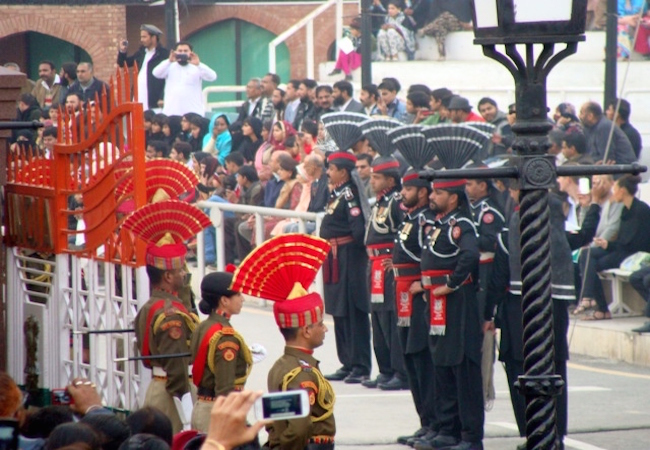
By Zainab Aziz
The strategic conditions in South Asia Region are still overshadowed by the strained India-Pakistan Relations while its being more than five decades now. There has been varied intensity of conflicts between the two neighbours having nuclear power but the contemporaneous decade has observed upsurge in tension levels, incapability to liaise with each other on the matters of mutual concern and the rising mistrust between the two nations.
Few weeks ago, General Joseph L Votel, Commander US Central Command, in his statement before the Senate Armed Services Committee, raised concerns about the tensions between Pakistan and India. Giving his views on India’s stance on Pakistan’s diplomatic isolation, General Joseph said: “India’s public policy to ‘diplomatically isolate’ Pakistan hinders any prospects for improved relations. This is especially troubling as a significant conventional conflict between Pakistan and India could escalate into a nuclear exchange, given that both are nuclear powers.”
Tensions have been high in Kashmir since last July, when Indian security forces killed a young Kashmiri leader, prompting months of widespread protests and an ensuing security crackdown in Indian-administered Kashmir that killed at least 80 people.
According to a statement issued by the ISPR at that time, Indian Army has been targeting innocent civilians on both sides of line of Control in recent past. “Any misadventure by Indian Army across Line of Control will be a miscalculation, shall be responded with full force and could lead to unintended consequences,” it added.
Pakistan’s foreign office, meanwhile, summoned the Indian deputy high commissioner to condemn what it termed “the unprovoked ceasefire violation by the Indian occupation forces” overnight.
“The deliberate targeting of civilians is indeed condemnable and contrary to human dignity and international human rights and humanitarian laws,” it said in a statement.
Pakistan and India maintain a 2003 ceasefire agreement across the LoC, but India frequently violate it, usually blaming the Pakistan for instigating hostilities.
The ceasefire violations by Indian troops along the Line of Control (LoC) continued throughout the day at different sectors, resulting in injuries to six civilians inclusive of four women. After Nakiyal Sector, the Indian troops targeted civilian localities in Baroh Sector where the exchange of fire was continuing till late in the evening.
Both countries have claimed the Kashmir region in full since partition and independence from Britain in 1947, but administer separate portions of it. The South Asian neighbours have fought two of their three wars over Kashmir.
Whenever there is a sudden surge in violence in Indian-administrated Kashmir, hostilities between India and Pakistan increase at the Line of Control (LoC), which serves as the de facto border between the two countries.
New Delhi may be uneasy about the China-Pakistan Economic Corridor (CPEC), a bilateral economic project between the two countries that promises to invest more than $46 billion in the country. Apparently, the leadership in Pakistan believes that India’s open hostility towards CPEC, which is being called Islamabad’s economic lifeline, cannot be countered by accommodating New Delhi’s demands and threats. Rather, the current policy in Pakistan is to stand up to Indian threats regardless of political, diplomatic or military consequences. Historically, Pakistan has always done in the past by employing all available means, including security and diplomatic, to thwart hostile designs by New Delhi.
During the past many years, Pakistan has missed opportunities to settle the Kashmir dispute, while India has played for time and held on to the two-thirds of Kashmir that is under its control albeit at a heavy cost. Several proposals have been made by various groups in recent years. The ideal solution would be to hold a plebiscite in the entire state, including the Indian and the Pakistani sides, under U.N. supervision as promised in 1949. Since the outcome of such a vote is obvious, India has opposed it under one pretext or the other all these years. It is a hard sell even today.
Zainab Aziz is a Research Affiliate at the Strategic Vision Institute in Islamabad, Pakistan




